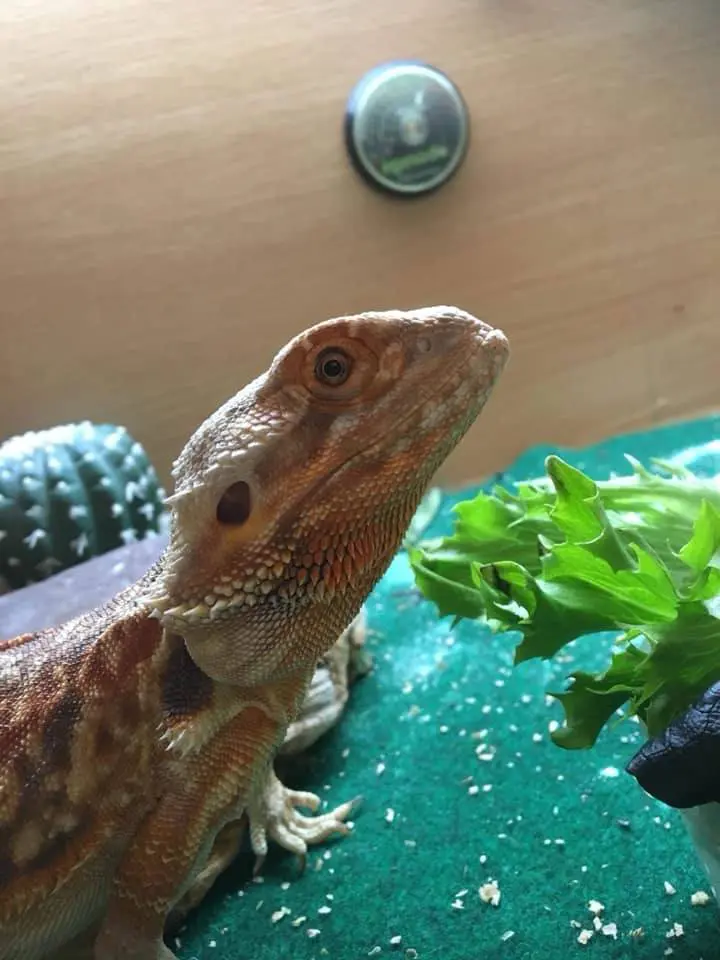Whether you have recently purchased a bearded dragon with an underbite or your beardie is developing an underbite, there are some important things you need to know.
There are two causes for underbites in bearded dragons. The first is Metabolic Bone Disease. The second is caused by genetic defects.
A genetic defect there is nothing to worry about, your beardie should manage fine. However, if it is caused by metabolic bone disease, then you need to take care and seek immediate veterinary assistance and advice.
What is Bearded Dragon Underbite?
An underbite in bearded dragonn is when the bottom jaw stands out further than the top jaw, creating a gap. It is often a symptom of metabolic bone disease.

What Causes Bearded Dragon Underbite?
The first cause is genetic defects and there is nothing you can do to rectify this.
Metabolic Bone Disease
The second is metabolic bone disease, a common disease in bearded dragons that causes a terrible, slow and painful death to these beautiful lizards.
Poor nutrition can result in a lack of calcium and Vitamin D, causing the bones to soften and become brittle.
It results in poor coordination, muscle loss, and eventually death, unless caught early and treated effectively by a vet.
Calcium deficiency is often caused by a lack of UVB, which bearded dragons soak up from the sun. This disease causes the body to remove calcium from the bones, resulting in fractures and worse.
This disease can result in deformities, making it hard for the dragon to move.
Not Enough Calcium
Bearded dragons rely on calcium to build strong bones. Through a calcium rich diet, they are able to produce Vitamin D3 which helps with muscle and bone health.
Most bearded dragon owners use a Vitamin D and Calcium supplement, dusting food with the powder before feeding to ensure the dragon has ample calcium in its body.
Not Enough UVB Exposure
Bearded dragons need UVB in order to absorb calcium. Even dusting food with calcium supplements isn’t enough if your dragon isn’t getting enough UVB exposure.
Without UVB, bearded dragons can’t actually absorb and use calcium properly.
Ensure you provide a basking area with enough UVB where your dragon can spend its day soaking up the goodness of UVB to help absorb calcium and keep your dragon healthy.
A Diet of High Phosphorous Foods
If you are in the habit of feeding your dragon high phosphorous foods such as bananas, then the risk of developing the metabolic bone disease is increased.
Bearded dragons get all the phosphorous they need when eating vegetables, so keep the bananas and other phosphorous foods away. Ensure when buying calcium supplement, it does not include phosphorous.
Feeding Spinach or Kale
Spinach and kale are both high are oxalates, which are known to disrupt the body’s ability to absorb calcium effectively.
If you are currently adding spinach and/or kale to your beardie’s diet, you stop immediately to ensure the property intake of calcium and reduce the risk of metabolic bone disease.
Incorrect Temperatures
Yes, temperature plays a vital role in the overall health of your bearded dragon. Incorrect temperatures can result in improper digestion of food and the inability to absorb minerals and vitamins.
Therefore, it is hard to absorb calcium and possibly resulting in metabolic bone disease.
Bearded Dragon Underbite Treatment
You cannot treat and reverse metabolic bone disease overnight. It can take months before you get your dragon back to full health.
It’s not uncommon for beardie owners to report reversing this disease taking up to six months or more before the beardie starts moving regularly.
Immediately veterinary care for medication along with the right UVB set up and calcium supplement can make a big difference in getting your bearded dragon back to health again.
Bearded Dragon Underbite Prevention
There are 4 preventative measures you can take to reduce the risk of your bearded dragon developing an underbite, these include:
- Ensure you monitor the temperatures of the enclosure to have a basking area of 95ºF to 105ºF and a cool side of between 85ºF and 95ºF. Bearded dragons digest their food properly when warm. Use a digital thermometer for quick and easy monitoring.
- Purchase a good quality UVB bulb and ensure you replace it every six to eight months to achieve the best results.
- Use a calcium supplement and dust insects before feeding.
- Provide a mix of healthy greens, eliminating kale, spinach and lettuce from the selection.
Conclusion
The most common cause of an underbite in bearded dragons is metabolic bone disease, which can be treated effectively by a vet.
Ensure you keep your temperatures at optimum and provide a basking area with UVB light to reduce the risk of metabolic bone disease and therefore reduce the risk of an underbite.